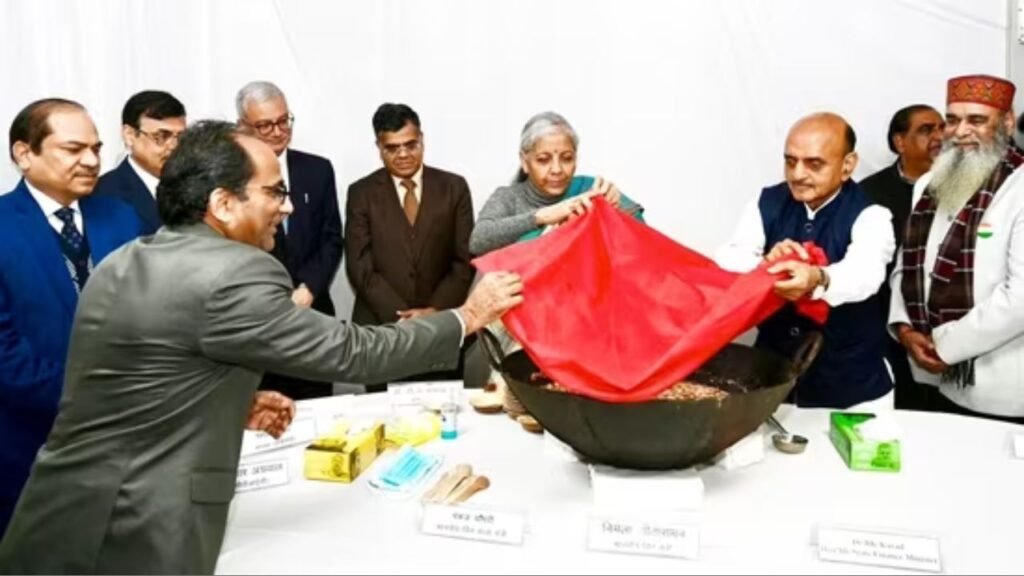In the Gazette Notification, the Ministry announced that the import duty on various parts, including LCD foam and sticker-battery slot, has been lowered from 15% to 10%. These parts include battery covers, front covers, middle covers, main lenses, back covers, GSM antenna, PU case, SIM socket, screws, and other mechanical items made of plastic and metal.
The ministry of financehas been reduced to 10%, from the earlier 15%
The Ministry of Finance said one day in advance of the budget release that the import duty on parts that are necessary for the production of mobile phones has been reduced by the Center from 15% to 10%.
The Ministry announced in the Gazette Notification that the import duty has been lowered to 10% on parts that include, but are not limited to, LCD foam, sticker-battery slot, GSM antenna, PU case, SIM socket, back cover, front cover, middle cover, and battery cover.

In order to make mobile manufacturing in India competitive, the government has made a key and welcome policy intervention, according to Pankaj Mohindroo, Chairman of the India Cellular and Electronics Association (ICEA). India must grow in size while taking advantage of cheap input tariffs in order to become a major hub for the production and export of electronics worldwide.
From ranking ninth a few years ago, electronics is now India’s fifth-largest export in 2024. Because of the PLI Scheme, approximately 52% of electronics exports are mobile devices. Within the last eight years, this is the first industry to move from import substitution to export-led growth. He continued, “The Government has been a great and eager partner in this transition.
POSSIBLE IMPACT
While the actual impact will depend on various factors, including how manufacturers respond to the change, consumer demand, and global economic landscape, the decision can have a positive effect on the industry and overall economy.
With the cost of importing essential components going down for manufacturers, the prices of mobile phones could see a dip. It could also encourage domestic manufacturing as it will be more cost effective for companies. This aligns with the government’s “Make in India” initiative, promoting self-reliance and reducing dependence on imports.
This is Nirmala Sitharaman’s sixth straight budget, matching the record of Dr Manmohan Singh. Sitharaman, India’s first full-time female finance minister, has presented five full budgets ever since assuming office in July 2019. With the presentation of the Interim Budget on Thursday, Sitharaman will surpass her predecessors– Arun Jaitley, and Yashwant Sinha.
Arun Jaitley and Yashwant Sinha presented five budgets in a row
Sector-wise import duty expectations from Union Budget 2024
Despite this being only a vote-on-account budget, the common man wants Nirmala Sitharaman to announce a decrease in taxes, further increase in the threshold for income-tax rebates, revision in the capital gain tax system, addition of more benefits under the new tax regime, and the removal of goods and services tax (GST) from insurance policies.Not only this, the recruitment industry is also looking at budgetary allocation towards workforce development and skill enhancement. It also expects the budget to look at regulatory frameworks related to the gig economy and contingent workforce.
“A forward-looking budget should also address regulatory frameworks related to the gig economy and contingent workforce, ensuring a balanced and flexible approach that benefits both employers and workers. Creating an environment that fosters collaboration between recruitment platforms and technology firms will be pivotal in driving innovation and staying at the forefront of industry advancements. By cultivating such an environment, we can not only sustain the growth witnessed but also create a landscape where the gig economy becomes a driving force in shaping the future of work,” Sekhar Garisa, foundit CEO, said.
Besides focusing on the gig economy, the industry is also eyeing targeted incentives for select sectors to boost investment, job creation and promote industrial expansion.
“The budget may have targeted incentives for certain sectors to stimulate investment, foster job creation, and promote industrial expansion. These incentives can be reinforced by increased allocations for skill development programmes, incentives for job creation in the informal sector, and promotion of equitable and stable working conditions,” said Rohet Ramesh, Director at Layam Group, a staffing management and talent acquisition services firm.
